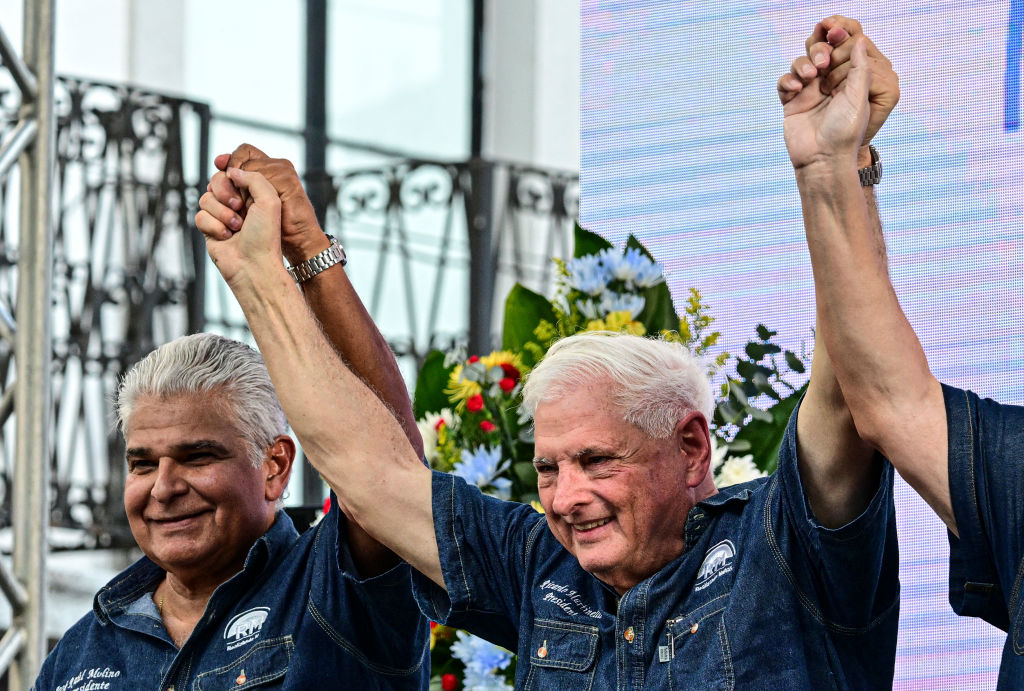U.S.-Panama Trade: Linking Strategic Partners for Increased Opportunity
U.S.-Panama Trade: Linking Strategic Partners for Increased Opportunity
On September 17, the COA hosted a panel discussion on Capitol Hill to discuss the pending Free Trade Agreement between the United States and Panama. The forum provided an opportunity to analyze the future of trade links between the two countries.
Speakers:
- H.E. Samuel Lewis, Vice President of Panama and Minister of Foreign Affairs
- Ambassador John Veroneau, Deputy United States Trade Representative
With Congressional remarks by:
- The Honorable Adam Smith, Representative from the 9th District of Washington
- The Honorable Wally Herger, Representative from the 2nd District of California
- The Honorable Joseph Crowley, Representative from the 7th District of New York
- The Honorable Dan Burton, Representative from the 5th District of Indiana
Summary
On September 17, 2008, the COA hosted a panel discussion on Capitol Hill to discuss the pending Free Trade Agreement (FTA) between the United States and Panama. The panel provided an opportunity to explore the future of trade relations between the two countries.
In his opening remarks, Congressman Wally Herger stressed the importance of bipartisan trade agreements and the need to expand markets abroad in order for the economy to prosper. He emphasized that FTA’s with nations like Panama are both crucial and beneficial for all countries involved. The Panama Canal expansion, for example, will not only increase trade capacity but will also give U.S. firms the opportunity to participate in the modernization project by providing competitively priced manufacturing equipment, goods, and services during construction.
Congressman Dan Burton of Indiana addressed the issue of security in the Western Hemisphere. He recognized trade as a necessary means to ensure stability and foster good relations between the United States and the region as a whole. The interdependence created by trade agreements will allow for the further promotion of bilateral relations and economic opportunities in the common interest of both nations.
More than one Congressman spoke of the possible scenarios for the eventual passing of the agreement. They reached a consensus in believing that it is unlikely that the agreement will be voted upon prior to the November election, however, they did allude to the possibility of a post-election session.
The Vice President of Panama, Samuel Lewis, called attention to the fact that Panama is the fastest growing economy in the Americas and an important ally to the United States who is its major trading, investment, and strategic partner. The passing of the FTA would not only send a strong geopolitical message, but also guarantee benefits for everyone by creating a more stable economic and political environment.
Panama has been undertaking various measures to address socio-economic issues in the country through fiscal and social reforms. This is indicative of its commitment to development and increasing the living standards of its population. Vice President Lewis sees trade as an important factor of this development and acknowledges the need to continue fostering trade relations in order to encourage economic growth for his country. With this in mind, he asks that the United States consolidate these strategic partnerships by not allowing the Panama and Colombia FTAs to fall behind in the agenda.
Congressman Adam Smith stated that some of the greatest strengths of this agreement are the internationally recognized provisions put in place on labor and environmental protection. There are still some contentious issues such as trade adjustment assistance, but it is in the United States utmost interest to break through the log jam in Congress and vie for a swift passing of this politically and economically sound agreement.
Congressman Joseph Crowley of New York also made sure to address the concerns of the American population during this period of economic malaise and decline in consumer confidence. As an Internationalist, he believes that trade and domestic issues are co-dependent and that Panama and the United States can work together to create more jobs and opportunities for both Americans and Panamanians in this time of need.
Ambassador John Veroneau of the USTR also mentioned the importance of the economic and physical security nexus. Countries require strong governments and a general disposition to openness through financial markets and transparency in order to prosper. This agreement has the potential to create highly competitive jobs that pay on average 15 percent more than regular jobs. Any further delays in the approval of the FTA will cause consternation in the region and impede progress. Therefore, it is imperative that the U.S. embrace its closest allies through promoting trade in order to reaffirm its role in the hemisphere, and show their support for the developing nations that have been neglected by previous administrations. It is now a matter of waiting for the Congressional approval of other pending free trade agreements in the pecking order in the hope that the Panama FTA will get its vote.
Overall, the discussion was a strong testament to the importance of the U.S.-Panama FTA and why it should be passed by Congress in a timely fashion.






